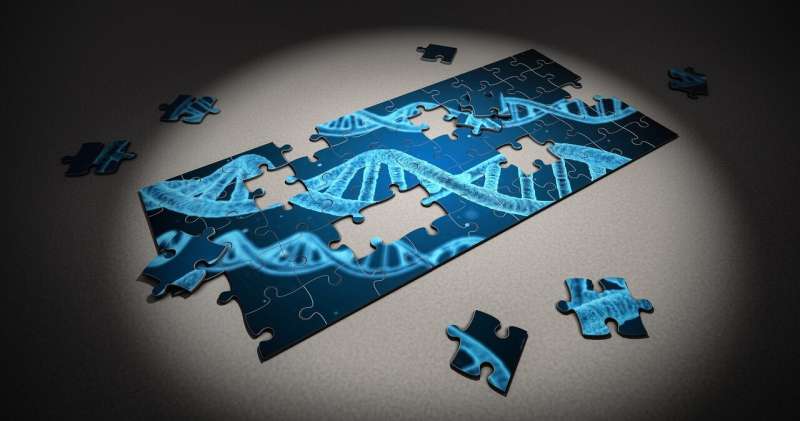Identifying a key gene responsible for cancer drug resistance

A researcher at the University of Missouri School of Medicine has discovered an enzyme that plays a key role in the ability of cancer cells to resist drug treatment.
Immunomodulatory drugs like thalidomide, lenalidomide and pomalidomide have improved the treatment of patients with multiple myeloma and other blood cancers. But almost all patients eventually develop resistance to these therapies.
Principal investigator Thang Van Nguyen, DVM, Ph.D., an assistant research professor in the Center for Precision Medicine, discovered that a protein called USP15 is highly expressed in cancer cells that become resistant to the standard immunomodulatory drugs.
"This USP15 protein protects the cancer cells from destruction by removing ubiquitin tags placed on the cells by the immunomodulatory drugs," Nguyen said. "Those tags initiate the cell degradation process. But if those tags are removed by USP15, the cancer cells will continue to grow and multiply."
Nguyen believes testing multiple myeloma patients for USP15 will help determine if a patient will be resistant to immunomodulatory drug therapy. That knowledge could lead to a more precise, customized treatment.
"This work could lead us to discover whether a USP15 inhibitor in combination with other drugs will be more effective to treat cancers," Nguyen said. "Further studies will be required to determine the best combination to improve clinical outcomes of patients with multiple myeloma and other types of cancer."
Nguyen's study was published in the journal Proceedings of the National Academy of Sciences of the United States of America.
More information: Thang Van Nguyen, USP15 antagonizes CRL4CRBN-mediated ubiquitylation of glutamine synthetase and neosubstrates, Proceedings of the National Academy of Sciences (2021). DOI: 10.1073/pnas.2111391118




















